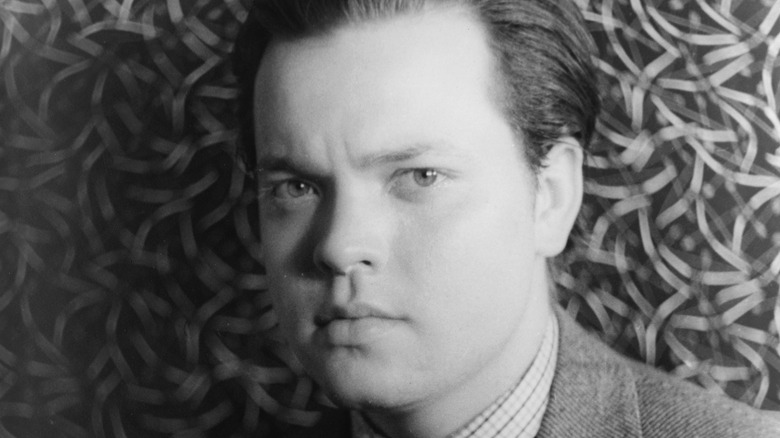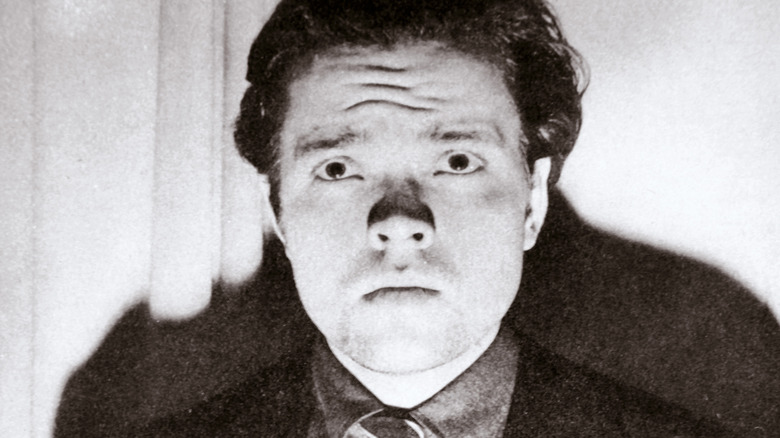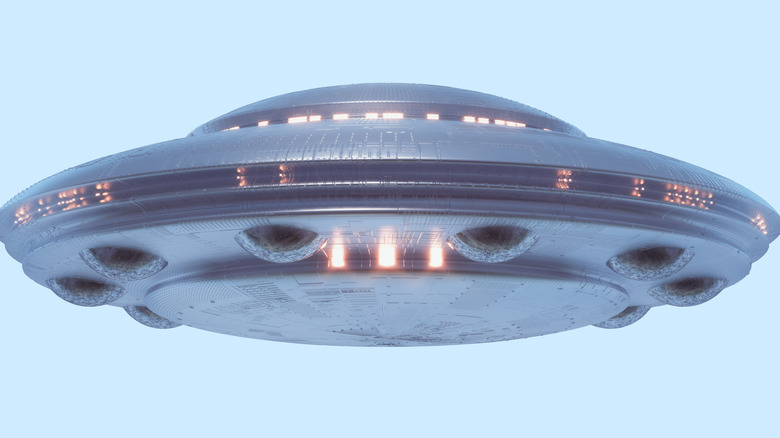The Notorious Radio Incident That Made Orson Welles Famous
Orson Welles is an all-time Hollywood legend. He wrote, directed, and starred in "Citizen Kane," one of the most influential movies ever made. When his follow-up film, "The Magnificent Ambersons," was released with an ending edited without Welles' approval, Welles went into a rage and kicked off an extremely stormy relationship with Hollywood for the rest of his life, as reported by Biography. He married and divorced Rita Hayworth, would periodically stop working entirely for a number of years, got a reputation for being difficult to work with, was often plagued by bad reviews, and had lots of heath problems as he got older. He did eventually receive the Lifetime Achievement Award of the American Film Institute, and in 1985, won the Directors Guild of America's D.W. Griffith Award. He died in October of that year, just two hours after his last interview on "The Merv Griffin Show" (posted on YouTube).
Welles' wild career started in an appropriately sensational and controversial manner. Before he made his way to the big screen, Welles was a theater actor. He discovered his passion for the stage in high school and left for Dublin, Ireland soon after, where he announced himself as a Broadway actor. He received attention for his performance in the play "Jew Suss" and at 19, actually became a Broadway actor, playing Tybalt in a production of "Romeo and Juliet." His performance caught the eye of director John Houseman, who cast him in the Federal Theatre Project, created in 1935 to provide work for theater professionals during the Great Depression, per History Link.
Martians reported attacking New Jersey
Per Biography, Welles and Houseman founded the Mercury Theatre. Their first production was a modernized stage adaptation of "Julius Caesar" that contained allusions to Facist Italy. It was a hit, and the Mercury Theatre moved into the then-cutting-edge format of radio, hosting a weekly program called "The Mercury Theatre On The Air" that ran from 1938 to 1940, and again in 1946. Per History, in 1938 the company decided to do a modernized version of the H.G. Wells science fiction classic "The War of the Worlds." It was written and performed in the style of a news broadcast, and Welles played the part of the announcer.
The performance ran on October 30, 1938. It wasn't announced as a performance of "The War of the Worlds." People at home listening to their radios heard a weather report followed by a performance by "Ramon Raquello and his orchestra." This was eventually interrupted with the news that "Professor Farrell of the Mount Jenning Observatory" had observed explosions on Mars. A report of a meteor crashing into a field in New Jersey followed, along with Martians emerging from large metal cylinders; per Welles, "The eyes are black and gleam like a serpent. The mouth is kind of V-shaped with saliva dripping from its rimless lips that seem to quiver and pulsate." The news report went on to describe the aliens firing "heat rays," taking out bystanders and 7,000 National Guard soldiers before releasing poisonous gas into the air.
The aftermath of 'The War of the Worlds'
Welles went on to describe more "Martian cylinders" landing in St. Louis and Chicago. At this point, per History, some listeners were entirely fooled by the dramatic storyline unfolding on their radios and began to panic. As reported by the CBC, the fictionalized newscast was one of the first pieces of media to go viral, with people reacting in fear and panic across the United States. The New York Times report that ran the next day related that the broadcast "disrupted households, interrupted religious services, created traffic jams and clogged communications systems." At an apologetic press conference given shortly after the notorious broadcast (available on YouTube), when asked if he'd been "aware of the terror that was going on," Welles replied, "Of course not ... you don't know whether they're listening or not ... I'd had every hope that the people listening would be excited as they would be at a melodrama."
Years later, in a 1955 interview with the BBC (as reported by the Columbia Journalism Review), Welles changed his tune slightly, saying "[I]n fact, we weren't as innocent as we meant to be when we did the Martian broadcast ... We were fed up with the way in which everything that came over this new magic box, the radio, was being swallowed ... so in a way, our broadcast was an assault on the credibility of that machine." The incident led to Welles landing a contract with a Hollywood studio, per History.


